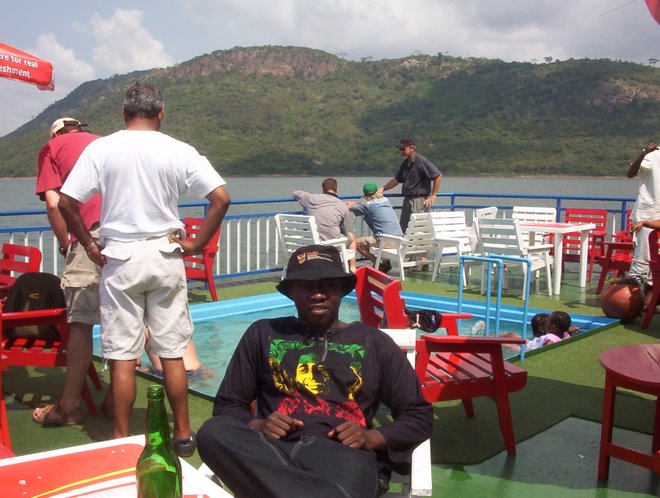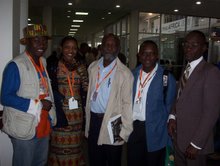The implementation of the National Health Insurance Scheme (NHIS) in the Ashanti region is progressing steadily despite some problems the scheme faced at its initial stages.
Presently about 38 percent of the population in the region had been covered by the scheme, according to Dr Joe Bonney, a Deputy Director for Clinical Care at the Ghana Health Service and Ashanti Regional Co-ordinator of the NHIS.
He explained that the scheme had achieved some significant successes as almost all health facilities in the region had signed contracts with the various mutual health insurance schemes (MHIS) to provide service to registered clients.
Information gathered indicates that the percentage coverage by the scheme is greater in the districts of the region than in the Kumasi metropolis probably due to apathy in the city.
However, only about 68 percent of registered clients have been utilising the services of the scheme due to the delay in the issuance of membership identification cards (ID) and the serving of probation period of three to six months before cards are issued to enable clients benefit from the scheme.
In an interview with Dr Bonney, he said there seemed to be an over utilisation of health facilities by some registered members of the NHIS simply because they were conscious that the scheme would take care of their medical bills.
He, however, described the situation as a good sign since it could be interpreted as, “people are gradually becoming conscious of their health and resorting to medical attention before their cases become complicated”.
But this has been described as an abuse of the system by some of the scheme managers, who think that people unnecessarily go to the hospital just to test the scheme while others do that just to ensure that they utilise the scheme before the term of their premium expires in a particular year.
Mr Francis Atta-Poku, Scheme Manager of the Subin Mutual Health Insurance Scheme told the Daily Graphic that most people unnecessarily go to the hospital especially getting to the latter part of the year when they feel they have not utilised their cards and their premiums were about expiring with the end of the year.
He said he had witnessed a case where a man sent four of his kids to the Children’s Hospital in Kumasi at a go with the explanation that the kids looked dull the previous day while they watched television but when the man was probed further, it came to light that he only wanted to utilise the scheme since he felt his premium for the year was about expiring at a time none of the family members had attended hospital.
Aside the successes of the scheme, it had been experiencing some challenges such as the delay in the issuance of the Identification Cards (ID).
Many people the Daily Graphic spoke to randomly in Kumasi, expressed their frustration with the delayin the issuance of the cards and called on the scheme managers to do something about the situation.
The delay in the issuance of the cards had been partly attributed to the of lack of the requisite human resource and equipment needed to process the cards.
Others have been attributed to the reluctance of registered members to go to the offices of various schemes to demand for their cards.
Most of the identification cards (ID) were locked up in the offices of the various schemes as people who have registered with the schemes have not gone for them.
At the offices of the Subin Mutual Health Insurance Scheme (MHIS) in Kumasi for instance, a large number of ID cards were yet to be collected and according to the Scheme Manager, Mr Atta-Poku, because they are many, it makes it cumbersome for staff at the office to go through them and give them out, anytime a person comes to demand for his card.
Beside that there are other problems such as lack of human resource and limited space at the various health facilities providing health service to people.
According to Dr Bonney, the introduction of the NHIS had resulted in an increase in the attendance of hospitals but most of the health facilities have limited staff and space to cater for the increase.
He said that was militating against the successful implementation of the NHIS as the limited space have been resulting in congestion at the Out Patient Departments (OPD) of most facilities and thus making it uncomfortable for patients.
He also explained that the payment of claims presented by health providers to various schemes had not been honoured on time and since most of the health facilities operate on internally generated funds (IGF) the delays in the payment of their claims have been affecting their operations.
He said the Manhyia Hospital for instance rendered services to clients of the Manhyia Scheme amounting to about ¢956million in year 2006 but only $582million had been paid as of the end of the year.
This anomaly, Dr Bonney said, needed to be worked on in order to help make the scheme sustainable.
The Scheme Managers on their part have explained that the subsidies from the National Health Insurance Council (NHIC) had not been forthcoming on time, which sometimes result in the delay.
Aside that they explain that the health facilities do not also submit their claims on time.
Mr Atta Poku of the Subin Scheme for instance explained that his outfit receives an average subsidy of about ¢400million from the NHIC on quarterly basis with which the scheme support it with premiums collected to settle claims, hence the payment of claims are bound to be delayed sometimes.
For instance, he said, in 2006 his outfit paid a total claim of ¢1.5billion while it was able to mobilise ¢1.7billion as premium.
He said a total of 69,000 people had been registered as of the end of 2006.
In trying to find lasting solutions to the difficulties associated with the implementation of the scheme, Dr Bonney suggested that the sensitisation and educational campaigns should be intensified and called for the need for people to see the hiccups in the implementation of the scheme as a social problem and shouldn’t leave the blame only on the scheme managers alone.
He also called for the need to try and get rid of the politicisation of the scheme and try to accelerate the networking of the system to help improve communication between the various schemes and service providers.
Presently most of the schemes offices are partly computerised.
Dr Bonney said the GHS, on its part, was also going all out to help ensure that drugs listed on the NHIS Drug list were available at provider facilities and added that the scheme was highly beneficial hence more people should be encouraged to register as things would be better as the scheme moves forward.



.JPG)




































